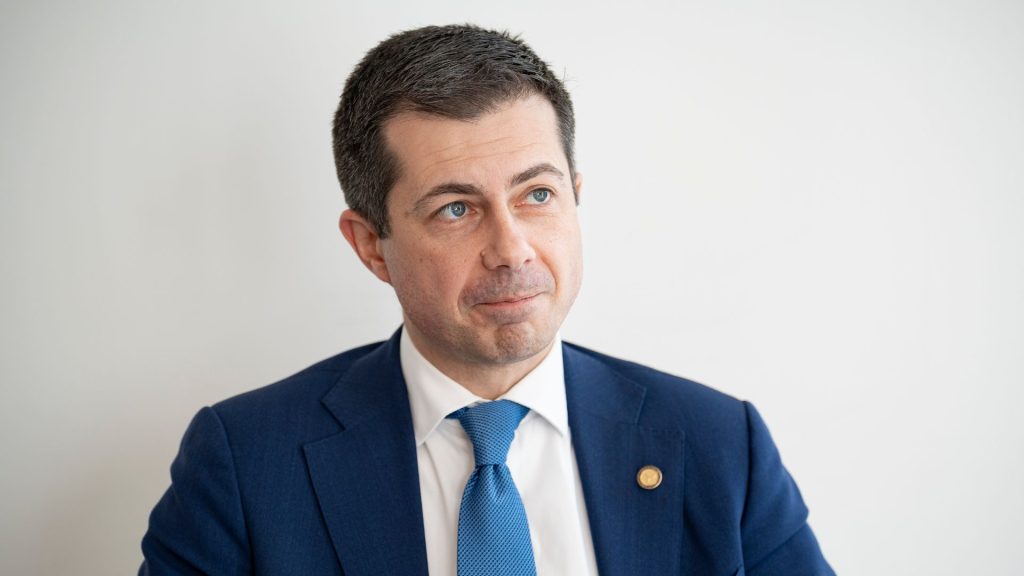Pete Buttigieg, the former Transportation Secretary, recently chimed in on a topic that’s been creating quite a buzz. He suggested that Democrats might want to consider adopting one of Donald Trump’s proposals for the 2024 campaign. This proposal involves expanding insurance coverage for in vitro fertilization (IVF) and other fertility treatments, aiming to ease the financial burden on aspiring parents.
Speaking on the podcast Pod Save America, Buttigieg was asked about this idea by co-host Jon Favreau. Buttigieg didn’t hesitate to agree that it was a sound policy move. “I think it’s good policy,” he stated, emphasizing the importance of supporting family growth initiatives.
Buttigieg argued that if America truly wants to be seen as pro-family, it needs to back policies that help people start families. This involves ensuring either government support or requiring private insurance to cover these essential treatments. He acknowledged some pushback from the right but urged not to dismiss efforts that help more people have families.
In February, Trump took a significant step by signing an executive order to expand access to IVF and other fertility treatments. The order aimed to cut down out-of-pocket costs, making these options more accessible for many Americans. It was a move that garnered attention and mixed reactions across the political spectrum.
However, not everyone was convinced about Trump’s commitment to this cause. The Washington Post pointed out that during his second term, there was little progress on this campaign promise. Their headline, “White House has no plan to mandate IVF care, despite campaign pledge,” captured the skepticism surrounding the issue.
White House spokesperson Abigail Jackson was quick to counter these claims. She stated that Trump’s administration was actively working on fulfilling this promise. Jackson emphasized that they were committed like no other administration before them to expanding access to fertility treatments.
The executive order was just the beginning, as it directed the Domestic Policy Council to seek ways to make these treatments more affordable and accessible. This initiative was intended to provide nationwide access to fertility services. It was a noteworthy attempt to address a growing concern among many Americans.
Buttigieg’s comments on this issue come at a time when he’s been openly critiquing the Democratic Party’s voter outreach strategies. Since the 2024 election, he’s raised questions about how the party approaches diversity. His critiques suggest that certain strategies might inadvertently alienate potential voters.
During a forum in February, Buttigieg voiced his concerns about the party’s diversity initiatives. He questioned whether these efforts genuinely supported people’s diverse experiences or if they forced people through unnecessary trainings. His comments highlighted a need for introspection within the party’s ranks.
He shared a personal anecdote, mentioning that he had experienced such training sessions firsthand. Buttigieg humorously referenced the show “Portlandia” to describe the exaggerated nature of some diversity efforts. He warned that such approaches might contribute to the rise of Trump Republicans.
The ongoing discussion about IVF coverage and fertility treatments is a fascinating intersection of policy and politics. It’s a topic that resonates with many Americans who face challenges in starting families. The conversation reflects broader themes of healthcare access and affordability.
As the political landscape continues to evolve, these discussions will likely remain in the spotlight. They touch on core values of family support and government responsibility. The debate also underscores differing ideologies on how best to achieve these goals.
Buttigieg’s willingness to consider Trump’s proposal illustrates a pragmatic approach to policy-making. It shows a recognition that good ideas can come from both sides of the aisle. This approach may signal a shift toward more bipartisan cooperation on important issues.
The conversation about IVF and fertility treatments is far from over. It raises questions about the role of government in personal healthcare decisions. It also highlights the financial hurdles many face in pursuing parenthood.
As more voices join the conversation, the potential for meaningful change grows. It’s a reminder that politics can serve as a platform for addressing real-world challenges. And it emphasizes the importance of finding common ground to support American families.
The dialogue surrounding this topic will likely influence future policy decisions. It’s an opportunity for leaders to demonstrate their commitment to family values. The focus on expanding access to fertility treatments aligns with a broader desire to support the American dream.
In the end, the discussion about IVF coverage is about more than just policy. It’s about ensuring that all Americans have the chance to build the families they dream of. And it’s a testament to the power of political discourse in shaping the future of the nation.



